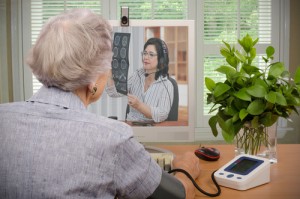On December 28, 2020, the District Court for the Northern District of California granted a motion for a preliminary injunction enjoining the Centers for Medicare and Medicaid Services from implementing the Most Favored Nation Rule (the “Rule”, summarized in our December 23 post) until the notice and comment procedures required by the federal Administrative Procedures Act (“APA”) are completed. The opinion, penned by Judge Chhabria, largely adopts the reasoning of the District Court for the District of Maryland, which granted a temporary restraining order against the implementation of the Rule last week. Judge Chhabria notes that the plaintiffs are “virtually certain” to prevail on their claim that the government violated the APA, and concludes that vacating the Rule in its entirety pending completion of the notice and comment period is the only appropriate path, as enjoining its enforcement as to the plaintiffs only runs contrary to the underlying purposes of the Rule itself. We will continue to monitor pending suits and other developments related to the Rule’s implementation.
Medicare
 A Houston federal judge preliminarily enjoined the government from recouping alleged Medicare overpayments made to an ambulance service company facing bankruptcy. See Adams EMS, Inc. v. Azar, No. H-18-1443, 2018 BL 391263 (S.D. Tex. 2018).
A Houston federal judge preliminarily enjoined the government from recouping alleged Medicare overpayments made to an ambulance service company facing bankruptcy. See Adams EMS, Inc. v. Azar, No. H-18-1443, 2018 BL 391263 (S.D. Tex. 2018).
As you may be aware, there is a massive backlog in the Medicare appeals process for alleged overpayments. The government can begin recouping at step 3 of the arduous 4-step administrative appeal process for overpayment demands. In a nutshell, the process involves: (1) seeking a redetermination from the Medicare Administrative Contractor (MAC), (2) asking for reconsideration from a Qualified Independent Contractor, (3) requesting a hearing before an administrative law judge (ALJ) of the Office of Medicare Hearings and Appeals, and (4) appealing to the Medicare Appeals Council. The law requires a decision on Step 3 within 90 days, but there is currently a 3-5 year backlog. Continue reading…
 A home health agency has scored a second win in its fight to prevent CMS from withholding Medicare payments (to effectuate a recoupment of alleged overpayments), at least for the time being. We previously reported on the home health agency’s first win before the Fifth Circuit (which reversed the Northern District of Texas’s jurisdictional dismissal of the lawsuit). See Family Rehab., Inc. v. Azar, 886 F.3d 496 (5th Cir. 2018). We now report on its second win: the Northern District of Texas’s decision, on remand, to grant the home health agency’s temporary restraining order (TRO) motion and to at least temporarily enjoin CMS from withholding further Medicare payments. See Family Rehab., Inc. v. Azar, No. 3:17-CV-3008-K, 2018 BL 196462 (N.D. Tex. Jun. 4, 2018), TRO extended by Order of Jun. 18, 2018.
A home health agency has scored a second win in its fight to prevent CMS from withholding Medicare payments (to effectuate a recoupment of alleged overpayments), at least for the time being. We previously reported on the home health agency’s first win before the Fifth Circuit (which reversed the Northern District of Texas’s jurisdictional dismissal of the lawsuit). See Family Rehab., Inc. v. Azar, 886 F.3d 496 (5th Cir. 2018). We now report on its second win: the Northern District of Texas’s decision, on remand, to grant the home health agency’s temporary restraining order (TRO) motion and to at least temporarily enjoin CMS from withholding further Medicare payments. See Family Rehab., Inc. v. Azar, No. 3:17-CV-3008-K, 2018 BL 196462 (N.D. Tex. Jun. 4, 2018), TRO extended by Order of Jun. 18, 2018.
To recap, a Zone Program Integrity Contractor (ZPIC) in 2016 alleged that the Medicare program had overpaid a home health provider, Family Rehab, nearly $7.9 million. Family Rehab asked for a redetermination from its Medicare Administrative Contractor (MAC). The MAC, however, affirmed the ZPIC’s conclusion. The provider then asked a Qualified Independent Contractor (QIC) to reconsider the decision. The QIC slightly reduced the demand to over $7.6 million. Since the MAC by regulation can begin recouping overpayments after the QIC issues its decision, the MAC then noticed its intention to begin recouping the alleged overpayment. Family Rehab then requested an ALJ hearing. Continue reading…
 The Fifth Circuit has recently held that its courts have jurisdiction to hear a lawsuit seeking to enjoin Medicare from recouping funds until after a hearing because (1) the provider’s claim is collateral to the underlying recoupment and (2) the recoupment may result in the provider’s bankruptcy and in a disruption to its patients.
The Fifth Circuit has recently held that its courts have jurisdiction to hear a lawsuit seeking to enjoin Medicare from recouping funds until after a hearing because (1) the provider’s claim is collateral to the underlying recoupment and (2) the recoupment may result in the provider’s bankruptcy and in a disruption to its patients.
In 2016, a Zone Program Integrity Contractor (ZPIC) concluded that Medicare had overpaid Family Rehab (a home health provider) nearly $7.9 million. Family Rehab asked for a redetermination from its Medicare Administrative Contractor (MAC); the MAC affirmed the ZPIC’s conclusion. The provider then asked a Qualified Independent Contractor (QIC) to reconsider the decision. The QIC slightly reduced the demand to over $7.6 million. The MAC then noticed its intention to begin recouping the overpayment. (The MAC can begin recouping overpayments after the QIC issues its decision.) Family Rehab then requested an ALJ hearing.
Despite the statutory requirement for an ALJ to issue a decision within 90 days of a request for a hearing, the hearing is not projected to occur until at least 3 to 5 years from now. Since the recoupments will continue during the delay, the provider faces the possibility of going bankrupt and terminating operations before it could even conclude the 4-part Medicare appeal process (which has been described by the court as Byzantine). The recoupments would cut off nearly all of the provider’s revenue stream. Faced with these issues, Family Rehab sued the Secretary of Health and Human Services (HHS) in federal court and sought a temporary restraining order and an injunction to prevent the recoupment of any overpayments until the conclusion of the administrative appeals process. Continue reading…
Accountable Care Organizations, CMS, HHS, Medicare / No Comments
 On September 8, 2016, CMS announced in its blog that it will allow physicians to select their level of participation for the first performance year of the Medicare Access and CHIP Reauthorization Act of 2015 (“MACRA”) Quality Payment Program, which begins January 1, 2017. Importantly, during the first performance year (2017), “[c]hoosing one of these options would ensure [physicians] do not receive a negative payment adjustment” under MACRA in 2019.
On September 8, 2016, CMS announced in its blog that it will allow physicians to select their level of participation for the first performance year of the Medicare Access and CHIP Reauthorization Act of 2015 (“MACRA”) Quality Payment Program, which begins January 1, 2017. Importantly, during the first performance year (2017), “[c]hoosing one of these options would ensure [physicians] do not receive a negative payment adjustment” under MACRA in 2019.
Under the Quality Payment Program physicians will fall under the Merit-Based Incentive Payment System (“MIPS”) if they do not qualify under the Advanced Alternative Payment Model (“Advanced APM”) option. In 2019, physicians who are in the MIPS default option could face Medicare rate adjustments of up to 5% based on their performance under four weighted performance categories: quality (50%); resource use (10%); advancing care information (25%); and clinical practice improvement (15%). Advanced APMs include, for example, Track 2 and 3 MSSP ACOs; next generation ACOs; and bundled payment models, and physicians who qualify under the Advanced APM option earn a 5% incentive, are excluded from MIPS adjustments and receive higher fee schedule updates after 2024.
Recognizing that many physicians may face negative payment adjustments under MIPS as a result of participating under the Quality Payment Program, CMS is going to allow eligible physicians to “pick their pace of participation” and ensure they do not receive such negative payment adjustments in 2019 by choosing one of four options for the first performance year:
- Test the Quality Payment Program;
- Participate for part of the calendar year;
- Participate for the full calendar year; or
- Participate in an Advanced APM in 2017.
The first three options fall under MIPS, while the fourth option falls under the Advanced APM. In the first option, physicians could “submit some data to the Quality Payment Program”, avoid negative payment adjustments and test the waters before broader participation in subsequent years. Under option two, the performance year could begin later than January 1, 2017, a physician practice “could qualify for a small positive payment adjustment”, and a physician would submit Quality Payment Program information for fewer days. The third option is ideal for those physician practices that are ready to participate beginning January 1, 2017 and who are able to submit a full year of quality data. Additionally, physicians “could qualify for a modest positive payment adjustment.” The fourth option would be viable for those physicians or physicians groups who treat enough Medicare beneficiaries and who receive enough of their Medicare payments through an Advanced APM (e.g., MSSP ACOs). Through the Advanced APM option, physicians/physician groups would “qualify for a 5 percent payment in 2019.” It remains unclear what the difference is between a “small” and “modest” payment adjustment. However, CMS may address this in the final rule along with how it will implement MIPS and the Advanced APM. CMS will release the final rule by November 1, 2016.
For more information about MACRA, contact Chris Raphaely, Nicole Martin or a member of Cozen O’Connor’s Health Law team.
Healthcare, Medicare, Telehealth, Telemedicine / No Comments
Consistent with what we have been seeing in our own practice, and consumers’ growing demand for better access to telemedicine services, a bi-partisan movement is growing in both houses of Congress to expand telehealth services, improve health outcomes, and reduce healthcare costs. On Wednesday February 5, 2016, U.S. Senators Brian Schatz (D-Hawaii), Roger Wicker (R-Miss.), Thad Cochran (R-Miss.), Ben Cardin (D-Md.), John Thune (R-S.D.), and Mark Warner (D-Va.) introduced the Creating Opportunities Now for Necessary and Effective Care Technologies (CONNECT) for Health Act (s. 2484), which seeks to overhaul Medicare’s treatment of the practice of telemedicine and its related technologies. Companion legislation was introduced in the House of Representatives by U.S. Reps. Diane Black (R-TN), Peter Welch (D-VT), and Gregg Harper (R-MS). According to the Senate bill’s sponsors, the CONNECT for Health Act would:
- Create a bridge program to help providers transition to the goals of the Medicare Access and CHIP Reauthorization Act (MACRA) and the Merit-based Incentive Payment System (MIPS) through using telehealth and RPM without most of the 1834(m) restrictions contained in the aforementioned Senate bill;
- Allow telehealth and Remote Patient Monitoring to be used by qualifying participants in alternative payment models, without most of the aforementioned 1834(m) restrictions;
- Permit the use of remote patient monitoring for certain patients with chronic conditions;
- Allow, as originating sites, telestroke evaluation and management sites; Native American health service facilities; and dialysis facilities for home dialysis patients in certain cases;
- Permit further telehealth and RPM in community health centers and rural health clinics;
- Allow telehealth and RPM to be basic benefits in Medicare Advantage, without most of the aforementioned 1834(m) restrictions; and
- Clarify that the provision of telehealth or RPM technologies made under Medicare by a health care provider for the purpose of furnishing these services shall not be considered “remuneration.”
So far, the following organizations have publically endorsed the bill:
- AARP
- ACT | The App Association
- Airstrip
- Alliance for Aging Research
- Alliance for Connected Care
- Alliance of Community Health Plans (ACHP)
- Alzheimer’s Foundation of America
- America’s Essential Hospitals (AEH)
- America’s Health Insurance Plans (AHIP)
- American Academy of Neurology (AAN)
- American Academy of Physician Assistants (AAPA)
- American Association of Diabetes Educators (AADE)
- American Heart Association/American Stroke Association (AHA)
- American Medical Association (AMA)
- American Medical Group Association (AMGA)
- American Nurses Association (ANA)
- American Occupational Therapy Association (AOTA)
- American Osteopathic Association (AOA)
- American Psychological Association (APA)
- American Society of Nephrology (ASN)
- American Telemedicine Association (ATA)
- American Well
- Anthem
- Association for Ambulatory Behavioral Healthcare
- Association for Behavioral Health and Wellness (ABHW)
- CAPG
- Cerner
- DaVita
- Federation of State Medical Boards (FSMB)
- Hawaii Medical Service Association (HMSA)
- Health Care Chaplaincy Network
- Healthcare Leadership Council (HLC)
- Healthcare Information and Management Systems Society (HIMSS)
- Intel
- Kaiser Permanente
- LifeWIRE
- NAADAC
- National Association for Home Care & Hospice
- National Association for the Support of Long Term Care (NASL)
- National Association of ACOs (NAACOS)
- National Association of Community Health Centers (NACHC)
- National Council for Behavioral Health
- National Council of State Boards of Nursing (NCSBN)
- National Health IT Collaborative for the Underserved
- Personal Connected Health Alliance (PCHA)
- Population Health Alliance
- Qualcomm Incorporated (and Qualcomm Life)
- Telecommunications Industry Association (TIA)
- The ERISA Industry Committee (ERIC)
- The Evangelical Lutheran Good Samaritan Society
- The Jewish Federations of North America
- Third Way
- University of Mississippi Medical Center (UMMC) Center for Telehealth
- University of Pittsburgh Medical Center (UPMC)
- University of Virginia (UVA) Center for Telehealth
The full text of the bill can be found here.
Anti-Kickback, False Claims Act, Healthcare, Medicaid, Medical Assistance, Medicare, OIG, Whistleblower / No Comments
For those of us who work in the privacy and security space this past week has been a whirlwind with focus on the ramifications of the European Court of Justice (ECJ) decision invalidating the EU-U.S. Safe Harbor Agreement. Much has been written on the EU-U.S. Safe Harbor Agreement and much more will be written in the coming weeks. See Cozen O’Connor’s Cyber Law Monitor recent blog post, The End of Safe Harbor – What Does it Mean? However, the ECJ decision was not the only news on safe harbor last week. The U.S. Department of Health and Human Services, Office of Inspector General (“OIG”) issued their thoughts on data arrangements and safe harbor, albeit a much different safe harbor than the EU-U.S. Safe Harbor Agreement. Healthcare providers and health IT vendors should pay close attention to OIG’s Alert. See October 6, 2015 OIG Alert.
OIG issued the Alert during National Health IT Week and described it as a “Policy Reminder” on Information Blocking and the Federal Anti-Kickback Statute (42 U.S.C. 1320a-7b (b)). The Federal Anti-Kickback statute prohibits individuals and entities from knowingly and willfully offering, paying, soliciting, or receiving remuneration to induce or reward referrals of business reimbursable under any Federal health care program (“FHCP”). The Alert addresses a growing trend in the industry, arrangements involving the provision of software or information technology to a referral source. Although there is a safe harbor for electronic health records (“EHR”) arrangements it “must fit squarely in all safe harbor conditions to be protected.” 42 CFR § 1001.952(y).
In its alert, OIG focused on the parameters of the safe harbor exception that allows donors to enter into a wide variety of arrangements involving EHR software, IT, and training services, provided there are no restrictions to the use, compatibility, or interoperability of donated items or services. 42 CFR § 1001.952(y)(3). OIG provided guidance on this issue in 2013, explicitly stating that if the interoperability of an item or service is restricted by the donor or anyone acting on the donor’s behalf, including the recipient, then the donation violates the exemption and thus will be actionable under the Federal anti-kickback statute.
OIG’s Alert highlights practices outlined in its 2013 guidance that would be actionable under the Federal anti-kickback statute. For example, an agreement between a donor and a recipient to limit a competitor from interfacing with the donated items or services would be actionable. Even an agreement between a donor and an EHR technology vendor to charge non-recipient providers, non-recipient suppliers, or competitors’ high fees may be actionable.
OIG also provided an open invitation to whistleblowers to report fraud by urging persons with knowledge of violations of the safe harbor to be vigilant in reporting potential violations to their office. Violations will occur when donors engage in information blocking, which refers to practices that unreasonably block the sharing of electronic health information (EHI). OIG provided three criteria in a 2015 report for identifying practices that qualify as information blocking:
- Interference with the ability of authorized people to access, exchange, or otherwise use EHI.
- Knowledge, actual or expected under the circumstances, that the practice will be considered information blocking.
- No reasonable justification for limiting sharing of EHI.
If all three criteria are met, then the practice in question is considered information blocking.
For more information on this Alert, contact Ryan P. Blaney or any member of Cozen O’Connor’s Health Care team.
ACA, Affordable Care Act, False Claims Act, Medicaid, Medicare / No Comments
On August 3, 2015, a federal judge in the Southern District of New York ruled that the United States’ and state of New York’s complaints in intervention can move forward against a group of hospitals, under the federal False Claims Act (“FCA”) and New York’s FCA corollary. The hospitals allegedly failed to report and return Medicaid overpayments that were brought to their general attention over two years before all of the relevant repayments were made.
The judge’s opinion denying the defendants’ motions to dismiss in Kane v. Health First, et al. and U.S. v. Continuum Health Partners Inc. et. al., should be of particular note to providers because it contains extensive discussion and guidance as to how at least one federal judge interprets the Affordable Care Act’s (“ACA”) “60 day rule.” Specifically, the ACA’s rule requires any provider who receives an overpayment from Medicare or Medicaid to repay such overpayment within 60 days of the “date on which the overpayment was identified.” Further, retention of such an overpayment beyond the sixty-day period can result in liability under the FCA.
 On July 23, 2015, the Third Circuit invalidated, as being contrary to the Medicare statute, the U.S. Department of Health and Human Services’ (HHS) Medicare wage index “reclassification rule,” 42 C.F.R. § 412.230(a)(5)(iii). That rule was designed to prevent (and did prevent) urban hospitals that had strategically reclassified as being rural from being reclassified again (based on their newly acquired rural status) to a particular urban area, to benefit from a higher Medicare standardized amount and wage index.
On July 23, 2015, the Third Circuit invalidated, as being contrary to the Medicare statute, the U.S. Department of Health and Human Services’ (HHS) Medicare wage index “reclassification rule,” 42 C.F.R. § 412.230(a)(5)(iii). That rule was designed to prevent (and did prevent) urban hospitals that had strategically reclassified as being rural from being reclassified again (based on their newly acquired rural status) to a particular urban area, to benefit from a higher Medicare standardized amount and wage index.
In Geisinger Community Medical Center v. Secretary United States Department of Health and Human Services, the hospital first reclassified, successfully, as a Section 401 hospital (i.e., an urban hospital that elects to be treated as rural). It then sought to reclassify, based on its newly acquired rural status, to the Allentown urban wage index area. The hospital estimated that such a reclassification would increase its Medicare reimbursements by approximately $2.6 million per year. The Allentown urban area is 27 miles from the hospital. To be reclassified to that area, the hospital had to rely on the relaxed 35 mile maximum distance applicable to rural hospitals; it would not qualify under the maximum 15 mile distance applicable to urban hospitals. The reclassification rule, however, prohibited Section 401 hospitals from reclassifying based on their acquired rural status.
The Third Circuit panel majority, under a Chevron Step One analysis, agreed with the hospital that HHS’ reclassification rule is unlawful. It specifically held that the statutory text of Section 401 unambiguously requires HHS, through broad and mandatory language, to treat Section 401 hospitals like hospitals that are actually located in rural areas. The reclassification rule, therefore, unlawfully prevented the Section 401 hospital from being considered as a rural hospital in its application to reclassify to a different wage index area.
 On July 7, 2015, U.S. Reps. Mike Thompson, Gregg Harper, Diane Black, and Peter Welch announced the introduction of a new version of the July 2014 telehealth legislation (H.R. 5380) called the Medicare Telehealth Parity Act of 2015 (H.R. 2948) (the “Act”). The Act has already been referred to each of the House Energy and Commerce Committee and the House Committee on Ways and Means.
On July 7, 2015, U.S. Reps. Mike Thompson, Gregg Harper, Diane Black, and Peter Welch announced the introduction of a new version of the July 2014 telehealth legislation (H.R. 5380) called the Medicare Telehealth Parity Act of 2015 (H.R. 2948) (the “Act”). The Act has already been referred to each of the House Energy and Commerce Committee and the House Committee on Ways and Means.
According to Congressman Thompson’s press release, this Act would phase in and expand upon existing telehealth services under Medicare, by, among other changes:
- Removing the geographic barriers under current law and allowing the provision of telehealth services in rural, underserved, and metropolitan areas;
- Expanding the list of providers and related covered service that are eligible to provide telehealth services to include respiratory therapists, physical therapists, occupational therapists, speech language pathologists, and audiologists;
- Allowing remote patient monitoring for patients with chronic conditions such as heart failure, chronic obstructive pulmonary disease, and diabetes; and
- Allowing the beneficiary’s home to serve as a site of care for home dialysis, hospice care, eligible outpatient mental health services, and home health services.
For quite some time reimbursement barriers prevented the expanded use of telehealth/telemedicine under Medicare beyond reimbursement for limited services, limited modes of telehealth, and the “originating site” restriction. Over the last few years, legislation expanding access and reimbursement under Medicare for telemedicine/telehealth services has been introduced, but never passed. This time could be different as the legislation has not only bipartisan support, but also the support of industry groups, including among others, the American Telemedicine Association and the American Heart Association. Stay tuned for additional updates regarding the Act. For further information, contact J. Nicole Martin or any member of Cozen O’Connor’s healthcare law team.

